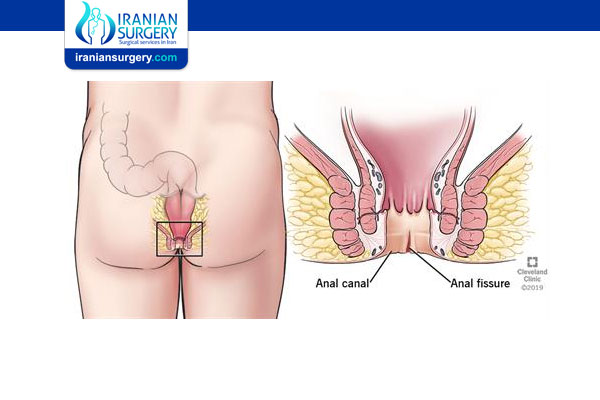chronic fissure symptoms
Chronic Fissure Symptoms
What Are the Symptoms of Anal Fissures?
An anal fissure is a tear in the lining of your anus or anal canal, the lowest part of your intestinal tract. It can make bowel movements very painful and can cause pain that lasts hours after you've gone to the bathroom. You may even try to avoid the bathroom to prevent the pain.
An anal fissure is usually a short-term (or acute) problem, with symptoms that last 6 weeks or less. It's considered long-term or chronic when symptoms last more than 6 weeks. Chronic anal fissures may be harder to treat and may be a symptom of another condition, such as Crohn's disease or ulcerative colitis.
Common Symptoms
If you have an acute anal fissure, you may feel a tearing or ripping sensation in that area during bowel movements. You may also notice:
. A visible tear in the anus
. Pain during bowel movements
. Blood on toilet paper after you wipe
. Blood on the surface of your stools
. Bleeding that discolors toilet water
. Bad-smelling discharge
Chronic Anal Fissure Symptoms
Signs that a fissure has become chronic can include:
. Painful bowel movements without bleeding
. Itching and irritation of the skin around the anus
. A skin tag at the end of a fissure
How Are Anal Fissures Treated?
Anal fissures sometimes get better on their own if you take steps to keep your stools soft. You might:
. Eat more fiber-rich foods like fruits and veggies
. Drink more liquids
. Take a fiber supplement or laxative
Sitz baths may help to heal them. To take one, sit in warm water for 10-20 minutes. Don't use soap or put anything else in the water. Do this several times through the day, especially after you poop.
If you still have symptoms after a month or two, you probably need medical treatment. Your doctor might suggest:
. Nitroglycerin ointment (Rectiv). This prescription medicine helps to relax the sphincter muscle around your anus. This helps maintain healthy blood flow to the area, which promotes healing.
. Blood pressure drugs like diltiazem (Cardizem) or nifedipine (Procardia). They also work by loosening up your sphincter muscle. They're usually prescribed as an ointment.
. Botox (botulinum toxin) shots to stop painful spasms in your sphincter.
. Surgery. When other treatments don't work, your doctor may do an operation in which they make a small cut in your sphincter. This helps it to relax and prevents spasms.
You might feel embarrassed to see a doctor about anal fissures because of where the problem is located. Or you might fear that treatment will bring more pain. But sometimes, medical treatment is the only way to heal this painful condition.
About Iranian Surgery
Iranian surgery is an online medical tourism platform where you can find the best Proctologists in Iran. The price of treating Anal Fissures in Iran can vary according to each individual’s case and will be determined by an in-person assessment with the doctor.
For more information about the cost of treating Anal Fissures in Iran and to schedule an appointment in advance, you can contact Iranian Surgery consultants via WhatsApp number 0098 901 929 0946. This service is completely free.
Source:
https://www.webmd.com/digestive-disorders/anal-fissure-symptoms


